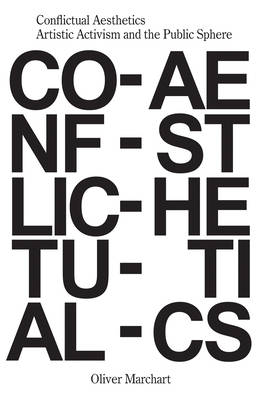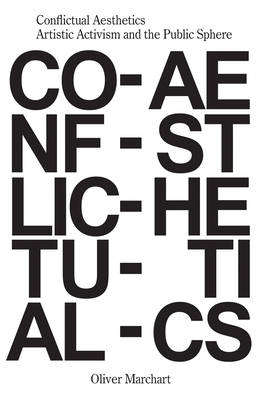
- Retrait gratuit dans votre magasin Club
- 7.000.000 titres dans notre catalogue
- Payer en toute sécurité
- Toujours un magasin près de chez vous
- Retrait gratuit dans votre magasin Club
- 7.000.0000 titres dans notre catalogue
- Payer en toute sécurité
- Toujours un magasin près de chez vous
Conflictual Aesthetics
Artistic Activism and the Public Sphere
Oliver MarchartDescription
Leaping into current debates about the political efficacy of art, the essays in Conflictual Aesthetics critique the supposition that all art is inherently political. Opposed to the political art defended by art world functionaries that hides behind "simplistic complexity," Oliver Marchart argues for a straightforwardly political theory of art and artistic praxis. At the intersection of art theory and radical politics, he proposes an aesthetics of agitating, propagating, and organizing, through which he problematizes and evaluates art in relation to activism or political propaganda, and addresses the radical potential of dance, theater, artistic re- and pre-enactments, public art, the curator, and the biennial.
Spécifications
Parties prenantes
- Auteur(s) :
- Editeur:
Contenu
- Nombre de pages :
- 192
- Langue:
- Anglais
Caractéristiques
- EAN:
- 9783956792045
- Date de parution :
- 03-12-19
- Format:
- Livre broché
- Format numérique:
- Trade paperback (VS)
- Dimensions :
- 130 mm x 198 mm
- Poids :
- 317 g

Les avis
Nous publions uniquement les avis qui respectent les conditions requises. Consultez nos conditions pour les avis.






